Can impact investing be done without any risk?
This question has dominated the minds of some of the wisest investors for decades and as impact investing evolves from being a niche investment vehicle to driver of a major change in the startup ecosystem, the answer is also becoming clear.
For decades, commercial investors have tried to protect their investments by investing in safer options like tech and software companies.
However, as we face new challenges in the 21st century, there are a new crop of startups trying to solve them and a number of impact investors helping these startups reach those goals.
However, impact investing continues to be seen as a risky investment where the risk is measured both in terms of financial risk as well as failure to generate social or environmental impact.
Despite trailing other European ecosystems in early stage funding, Amsterdam has become a hotbed for impact investing and is giving birth to many new age impact startups.
Niche to necessity
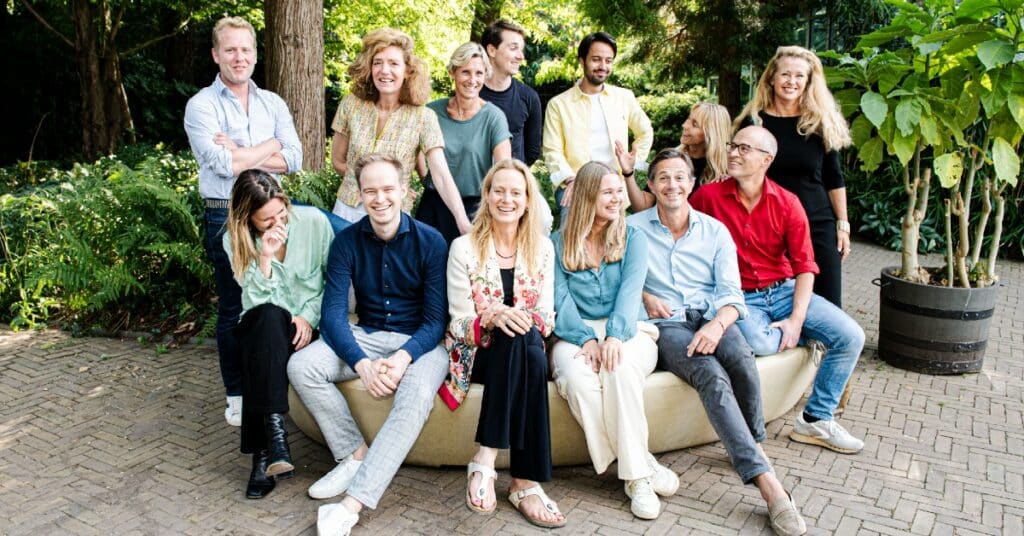
Amsterdam-based impact investors equivocally reject the idea of impact investing being riskier than traditional investment.
“We don’t believe that impact startups are riskier than regular startups,” says Willemijn Verloop, founding partner at Rubio Impact Ventures, one of the first impact investors in Europe.
She adds, “We see a growing group of investors joining the impact space as they are interested in double rewarding returns.”
Impact investing has become a major topic for investors, especially ones looking to align their portfolios with their values.
In fact, the roots of impact investing can be traced back to the 18th century when people resisted investments in companies driving conspicuous consumption.
During the 1960s, the idea gained strength in the US when Vietnam War protesters demanded that university endowment funds no longer invest in defence contractors.
Now, impact investing has found another meaning and one that plays a crucial role in solving 21st century challenges including climate change, equal opportunities, and technological disruption.
“Impact investing has become more popular over the years,” says Willem Poerink, Investment Manager at Shift Invest.
“I think the first impact funds of the earliest vintage years are showing proof that impact strategy can go hand in hand with market-rate return on investments,” he adds.
Dr. Till Stenzel, Partner at SET Ventures, agrees with Verloop and does not see any difference between impact startups and regular startups.
“They are both high-risk, early-stage propositions that need careful assessment,” he says.
They are also seeing more and more investors becoming interested in impact driven startups.
“For some of these investors, impact is in the core of their investment thesis and/or their daily operations,” explains Rinke Zonneveld, CEO of Invest-NL.
Impact and outcomes
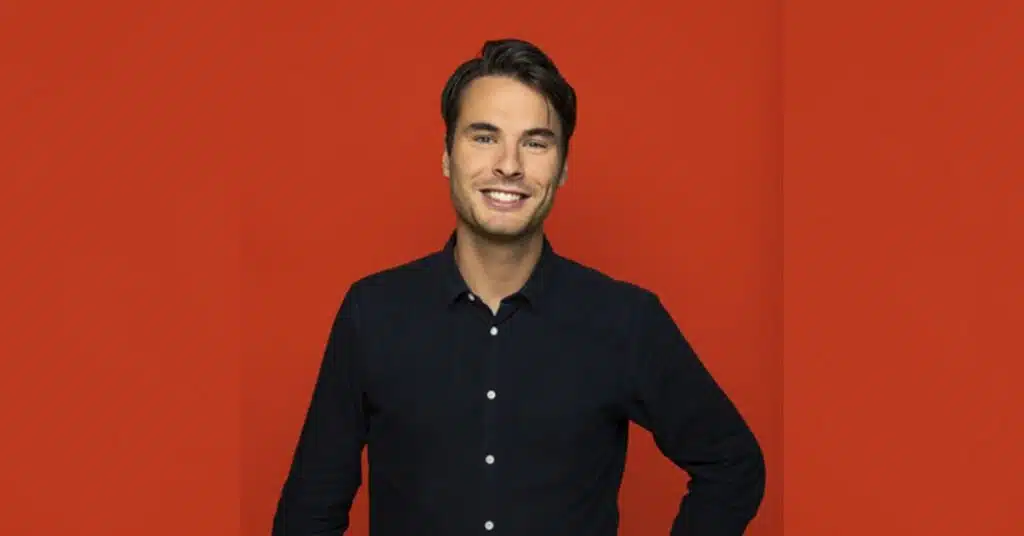
What’s driving the sudden spike in interest in investing? Well, there is no clear answer here but Stenzel feels many traditional venture firms are now “looking at investment opportunities that have a potential impact.”
Impact is about outcomes from the company’s activities and investors now see these impactful outcomes directly aligned with commercial success.
Wout van Blommestein, Investment Associate at DOEN Participaties, says many investors are now finding it reasonable to accept a slightly lower return on their investments if the impact on society or climate is bigger.
“We see commercial money flowing into impactful startups as investors realise that industries like climate tech can be a booming industry where some companies will turn into unicorns,” he adds.
While impact is mostly coming in the form of CO2 reduction, Stenzel adds that impact investors are also looking at metrics like renewable energy adoption or the roll out of electric vehicles.
“At SET, we require an impact objective for each of our investments, which we continuously measure and monitor,” he says.
Balancing impact with risk
According to Cambridge Associates, impact VC funds delivered 15 per cent returns over a 20-year horizon in developing markets, which was in line with mainstream funds.
While this data will be music to the ears of many investors, Amsterdam’s top impact investors favour balancing risk with impact.
Since early stage investing comes with its inherent risk, these investors don’t want to call it risk proof just yet.
“For us it’s crucial that business and impact are intrinsically aligned, companies creating a unit of impact for every unit they sell,” explains Verloop.
She says Rubio Impact Ventures always looks at impact, risk and returns in combination and keeps a longer horizon for returns.
“We believe in the long run these companies will come out stronger, so we don’t aim for a super speedy 10x return,” she notes, adding, “but look at strong scalable long term value creation for society and for our investors.”
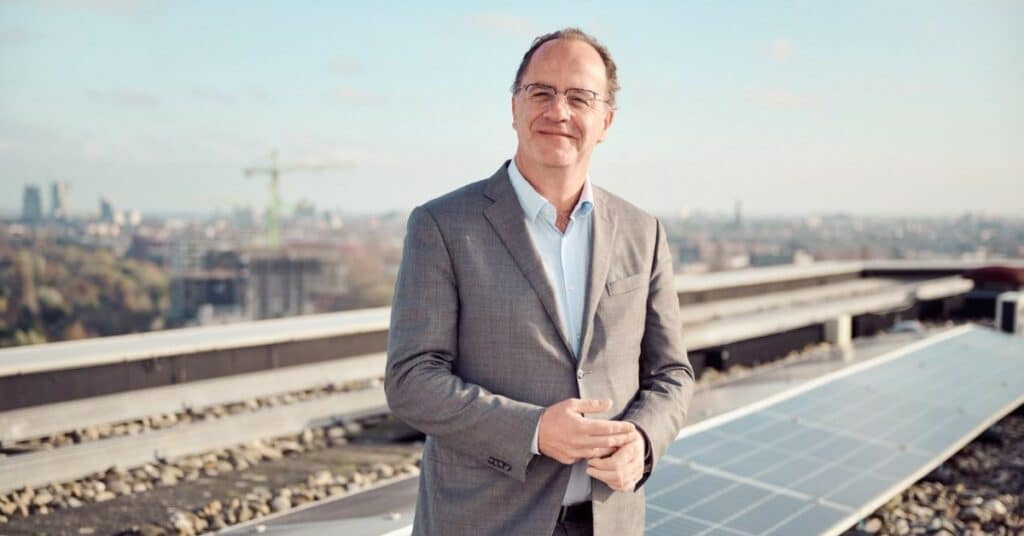
As the National Promotional Institute for The Netherlands, impact is the goal for Invest-NL and Zonneveld says “returns is a means to an end.”
“The higher the potential impact of an investment, amongst others measured via a life cycle analysis, the more risk we are willing to take,” he says.
As an impact first investor, DOEN Participaties also accepts higher risks and lower returns for companies with potential to change [broken] systems.
“On a portfolio level, we need to make a return on our investment in order to sustain our revolving fund. So, we need to balance between impact startups with higher returns and lower returns,” says Van Blommestein.
SET Ventures, on the other hand, looks at the impact thesis as part of each investment and balances it with financial analysis of the risks and potential returns on an investment.
Stenzel says, “We are a financially driven investor that generates returns for our own investor base, so every investment must have the potential to become a winner.”
Poerink, however, doesn’t want to sacrifice impact for financial return. He says Shift Invest seeks both a significant return on impact as well as a healthy financial return.
“We have an independent impact committee who assess the impact potential of the deal without taking financial return into account,” he says, adding “our investment committee considers both.”
One of the ways all these investors are balancing risk with impact investing is diversifying their investments.
Poerink says Shift Invest looks at impact startups working on climate change, biodiversity loss, natural resource depletion while also backing technologies with direct versus enabling impacts and industries or sectors.
He says, “We balance risk within impact, and then also balance this with financial return expectations to meet our fiduciary duty to LPs.”
Changing landscape
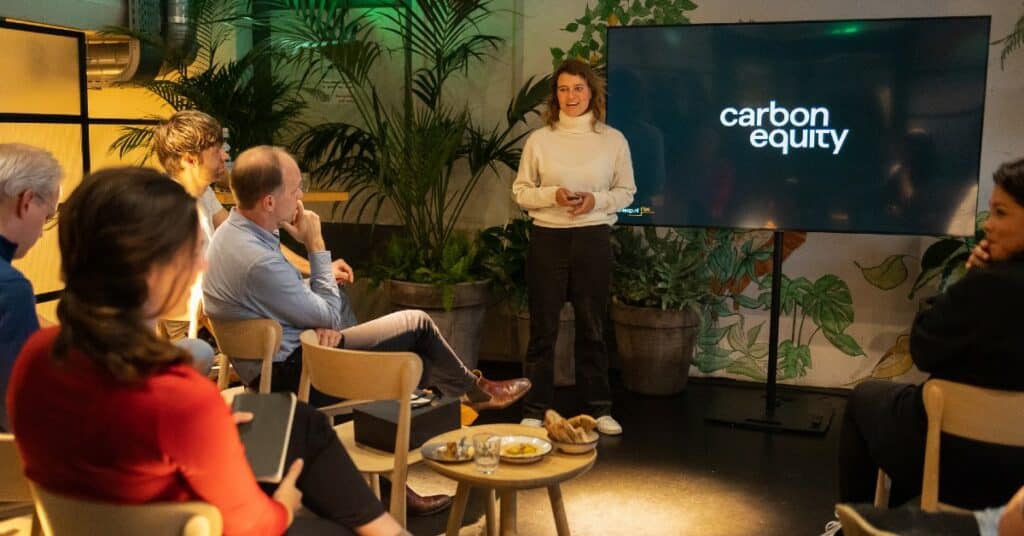
It won’t be far fetched to call Amsterdam as a microhub for impact investing in Europe.
When Rubio announced its first fund in 2014, it was one of the first impact investors in Europe and there has since been a steady rise of impact ventures and impact investors joining the space in the Netherlands and in Europe.
On one hand, it has traditional impact investors like Invest-NL, Rubio, Shift Invest, and others, while on the other hand, there are new age impact investors such as Carbon Equity, 4impact, Duurzaaminvesteren.nl, and LSP (Life Science Partners).
This week, Carbon Equity announced that its Climate Tech Portfolio Fund II has raised €50M from more than 100 investors.
The fund allows investors to invest alongside “7-10 world-renowned climate venture capital (VC) and private equity (PE) funds with a single investment ticket.”
With plans to soon allow a minimum investment of €50,000 and 320 per cent increase in assets under management (AUM), Carbon Equity is enabling small ticket access to real climate impact.
Verloop calls this shift in investor sentiment and landscape “crucial to make a real shift towards a balanced economy, where people and the planet thrive.”
Van Blommestein argues that impact investing has gone mainstream with the arrival of a number of impact investors.
Poerink says existing impact funds have become bigger while new impact funds have entered the market.
He also says fund to fund parties like Carbon Equity have helped improve the sentiment further than just the institutional and governmental bodies.
While the tide is in favour of impact investing, Stenzel warrants some caution in the space.
He says “impact has become a catch-all phrase for many sectors” and argues in favour of looking at whether impact is central to a company’s business or just a cursory outcome.
The road ahead for impact investing
One of the common things Dutch startups want to see is a stronger ecosystem but in the case of impact investing, that ecosystem already exists.
“An ecosystem with support mechanisms has been built in the Netherlands,” says Verloop and adds that this ecosystem is only getting stronger.
However, she wants to see more action to come from The Hague in terms of a clear policy.
“[The Hague] should remove barriers to impact investing by improving financial and regulatory frameworks and create conditions that foster the mobilisation of additional public and private capital to generate social and environmental benefits,” adds Verloop.
Poerink agrees with Verloop and says in addition to money, there is a need to “alleviate bureaucratic burden” by standardisation on impact between investors or making regulations like SFDR more proportional to the startup context.
Van Blommestein argues that investors should do some retrospecting and find answers to what returns are enough for them.
He also sees education and startup ecosystems facilitating more impact startups and investors to call Amsterdam their home.
As a veteran in the Dutch tech ecosystem and champion of Dutch startups, Zonneveld sees “special venture building programmes for impact startups being helpful.”
He says a lot of impact startups are still looking for the right business model and sees a clear need to support them in this endeavour.
However, none of this will translate into real impact if there is no wider adoption of solutions designed by impact startups.
Stenzel sees “need for wider customer openness to such solutions, as well as sound regulatory frameworks that support wider market adoption.”
Robert Baden-Powell’s “Try and leave this world a little better than you found it” comes to mind while looking at the work of these impact investors.
Their investments are clearly an attempt to leave this world a little better than they found it and that speaks volume about impact.






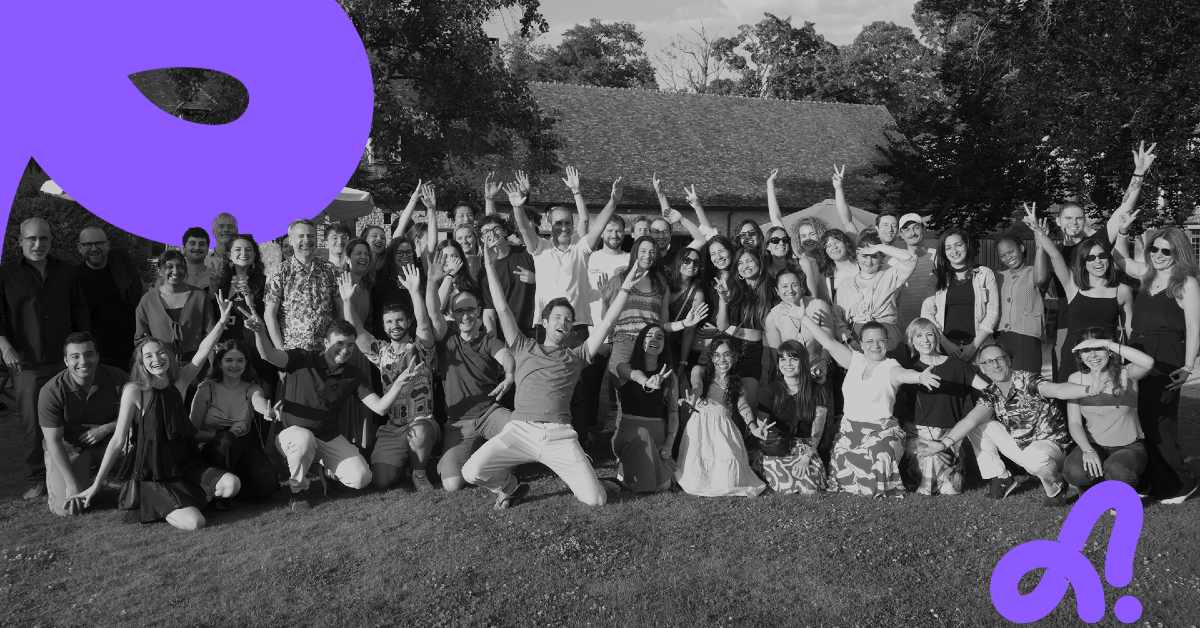

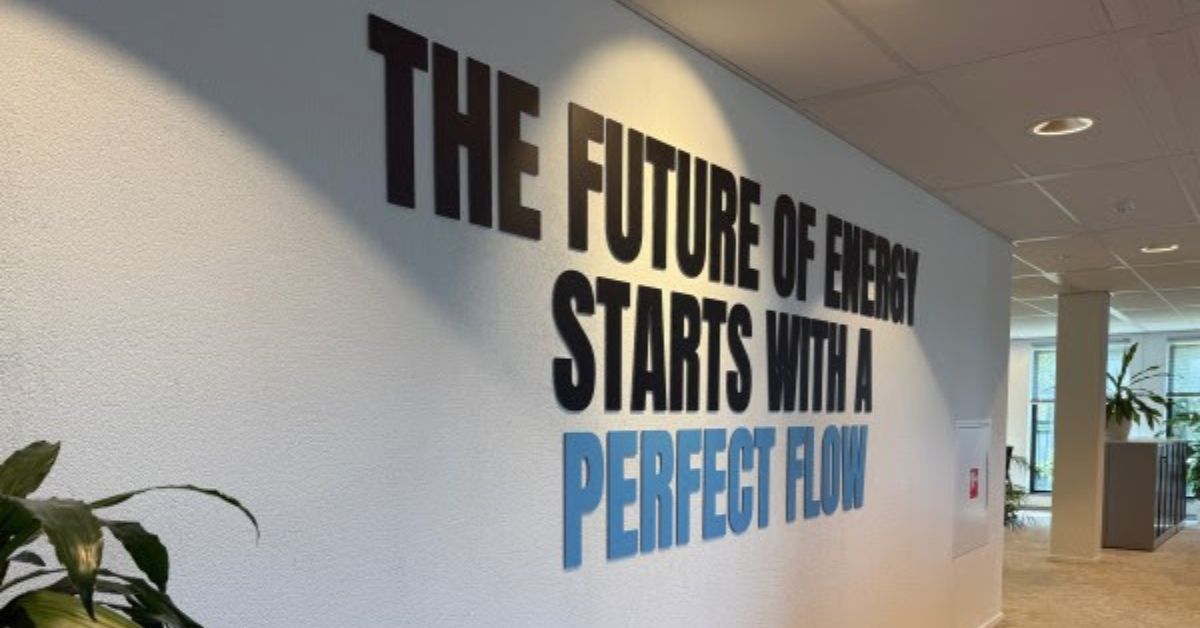

01
These are the top UK-based PR agencies for startups and scale-ups in 2025